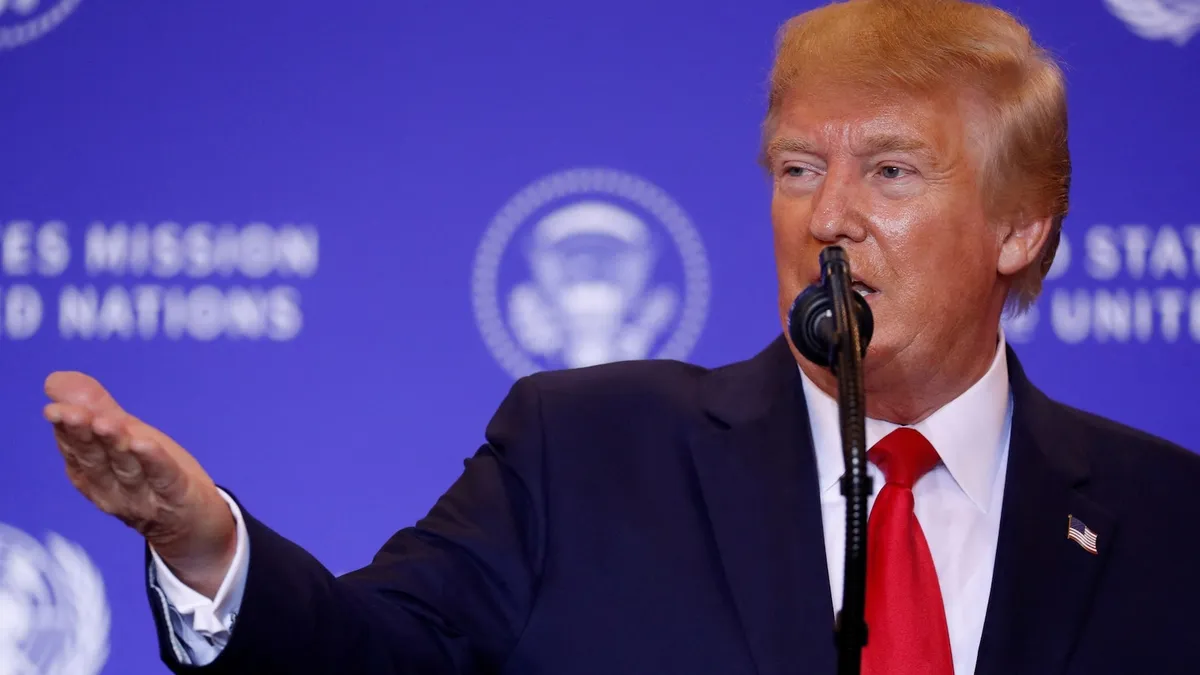
This week, President Donald Trump will take the stage at the United Nations General Assembly (UNGA) to deliver the first address of his second term. Scheduled for Tuesday, Trump's speech comes amid a turbulent international landscape, particularly concerning the ongoing conflict in Gaza. Notably, Trump will find himself largely isolated from more than half of the U.N. member nations, as key allies express their concerns over the humanitarian crisis unfolding in the region.
In recent months, Trump has initiated significant cuts to U.S. foreign aid, eliminating support for various U.N. agencies as humanitarian crises escalate around the world. His approach raises questions about the U.S. commitment to addressing global challenges, especially as the international community increasingly rallies around the recognition of Palestinian statehood in response to the turmoil in Gaza.
As tensions mount, several prominent world leaders—including those from the United Kingdom, France, and Canada—are advocating for a resolution to the conflict in Gaza. Calls for an end to hostilities and the immediate release of hostages have gained traction, with discussions centered on the future governance of Gaza without Hamas's influence. Notably, France and Saudi Arabia are set to hold an international peace conference in New York, aiming to support a two-state solution.
In a significant move, France and several allies are expected to formally recognize Palestinian statehood, joining over 140 countries that have already done so. The impending recognition is set against a backdrop of growing international alarm over the humanitarian crisis in Gaza. Leaders at the conference will include representatives from countries like Andorra, Australia, and Belgium, emphasizing a united front for peace.
In response to the potential recognition of a Palestinian state, Israeli Prime Minister Benjamin Netanyahu has publicly condemned the initiative, warning that it rewards terrorism and undermines Israel's security. His government is reportedly considering actions such as annexing parts of the occupied West Bank in retaliation for the recognition, which they view as a direct threat to their sovereignty.
The Trump administration has voiced strong opposition to these developments, claiming the recognition efforts are largely symbolic and unproductive in terms of fostering peace. Secretary of State Marco Rubio emphasized that such actions only serve to embolden groups like Hamas and further isolate Israel on the world stage.
Despite the U.S. and Israel's opposition, the U.N. General Assembly recently voted overwhelmingly to allow Palestinian President Mahmoud Abbas to address the assembly virtually, following the denial of a visa by the Trump administration. This vote, which passed with a 145-5 margin, underscores the shifting dynamics within international relations regarding Palestinian representation.
Amid these developments, Trump is scheduled to meet with various world leaders during the UNGA, including Netanyahu and Syria's President Ahmed al-Sharaa. Their discussions will focus on rebuilding efforts in Syria post-civil war. Additionally, the Iran nuclear program remains a critical topic, with France, Germany, and the U.K. moving to reinstate sanctions that were relaxed under the previous nuclear deal.
Trump is also expected to hold talks with Ukrainian President Volodymyr Zelenskyy regarding security guarantees in the wake of the ongoing conflict with Russia. As the situation remains precarious, both leaders will discuss essential measures to ensure stability and peace in the region.
The stage is set for a pivotal week at the United Nations General Assembly, where global leaders will address pressing issues that shape the future of international relations, humanitarian efforts, and peace initiatives.